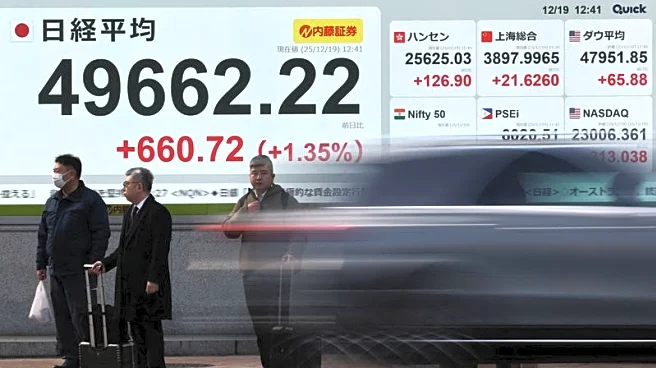What is the story about?
What's Happening?
Top Senate Democrats have expressed concerns regarding the U.S. administration's decision to allow the sale of advanced AI chips to China by companies such as Nvidia and AMD. In a letter dated August 15, six Democratic senators, including Chuck Schumer, Mark Warner, and Elizabeth Warren, urged President Trump to reconsider this policy. They argue that exporting these high-performance computing chips could compromise U.S. national security and technological leadership. The senators highlighted that the administration permitted these sales in exchange for a 15% revenue share with the U.S. government, which they believe could weaken America's competitive edge in the tech sector. Nvidia's H20 and AMD's MI308 chips, crucial for training AI models, are at the center of this debate. The lawmakers warn that these chips could enhance China's military and surveillance capabilities, a claim disputed by Nvidia.
Why It's Important?
The sale of AI chips to China raises significant concerns about national security and economic interests. While these sales can benefit domestic semiconductor firms financially, they also pose risks by potentially enabling China to advance its technological capabilities, particularly in military and surveillance areas. The debate reflects broader U.S. foreign policy challenges in balancing economic gains with security threats. The senators' call for stricter oversight and safeguards highlights the need for careful consideration of export control policies, especially for technologies with defense implications. As AI continues to drive technological advancements, maintaining a strategic edge is crucial for the U.S., making this issue a focal point in ongoing policy discussions.
What's Next?
The administration faces increasing pressure to align trade policies with security concerns. The open letter from Senate Democrats may prompt legislative action, signaling a shift in congressional sentiment. The bipartisan nature of the call for scrutiny suggests that the issue will remain prominent. The administration has yet to respond to the letter, but the growing debate indicates that further discussions and potential policy adjustments are likely.















